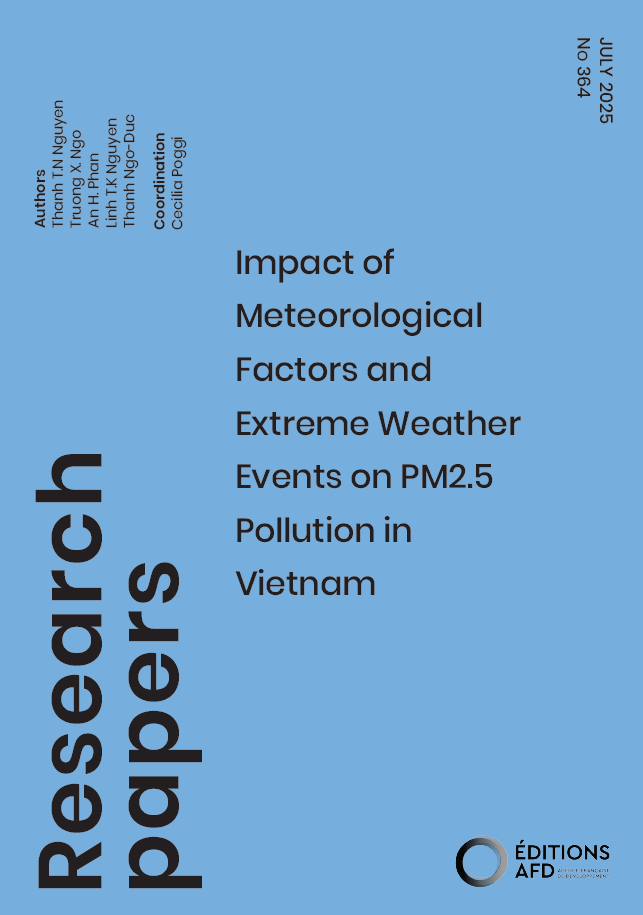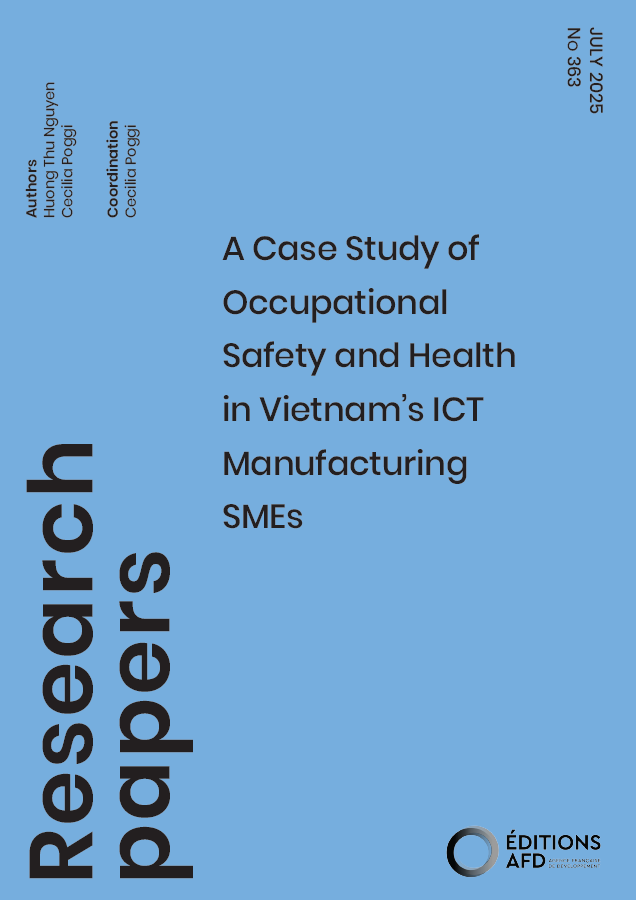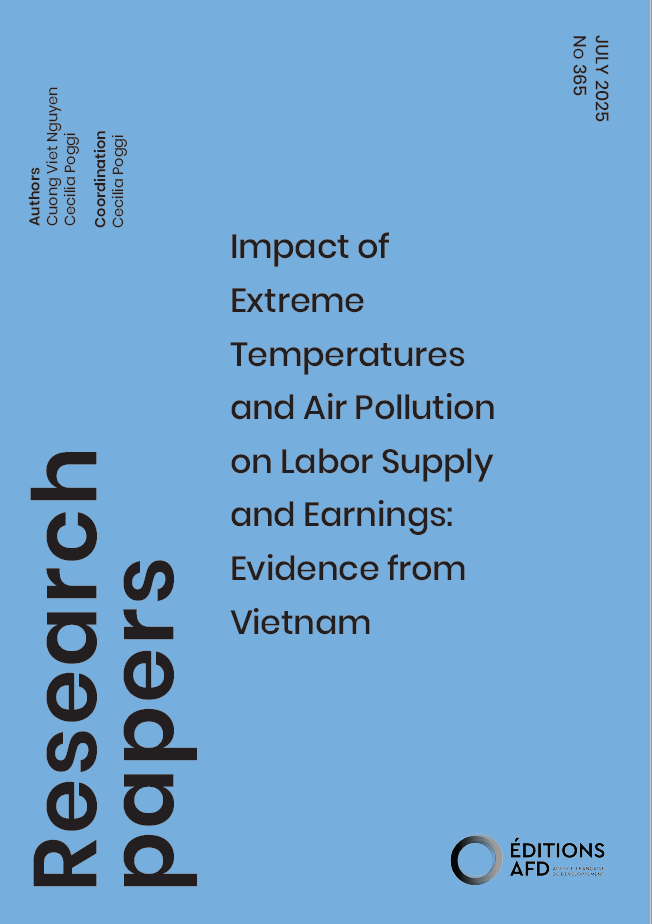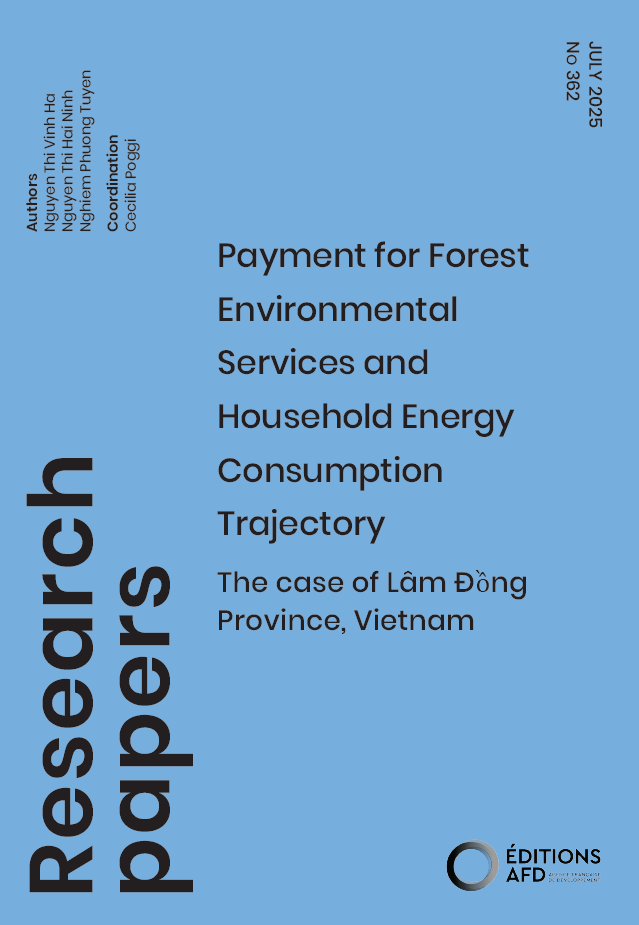Publications and media
Can Asia Sustain Its Growth?
In a context marked by renewed trade tensions, political uncertainty and major climate challenges, how can Asian economies remain resilient while pursuing sustainable and inclusive development? What a...

Impact of Meteorological Factors and Extreme Weather Events on PM2.5 Pollution in Vietnam
This study examines how meteorological factors and extreme weather influence PM2.5 pollution across six socio-economic regions in Vietnam from 2012 to 2020. Univariate and multivariate analyses, incl...

A Case Study of Occupational Safety and Health in Vietnam’s ICT Manufacturing SMEs
Based on an extensive desk review, and key informant interviews with a range of stakeholders, this background article explores the occupational safety and health (OSH) implementation in the Informatio...

The Impact of Extreme Temperatures and Air Pollution on Labor Supply and Earnings: Evidence from Vietnam
This study examines the impact of extreme temperatures and air pollution on employment in Vietnam. While we do not find significant effects of extreme temperatures or air pollution on labor force part...

Payment for Forest Environmental Services and Household Energy Consumption Trajectory: The case of Lam Dong Pr...
This research examines the impact of the Payment for Forest Environmental Services (PFES) program in Viet Nam on household income and its interaction with energy consumption behavior. A mixed-method a...

Reassessing the Role of Special Economic Zones in Africa
This study evaluates the role of Special Economic Zones (SEZs) in Africa using newly compiled datasets covering over 230 zones across 43 countries. It examines SEZ impacts on export diversification, t...

Evaluation of a cluster of projects responding to the Beirut port explosion
On August 4, 2020, the explosion at the port of Beirut severely impacted the Lebanese capital. Immediately mobilized within Team France, the AFD funded a multisectoral response to support the city’s r...

Infographic - Our climate commitments en 2023
In 2023, AFD Group committed €7.5 billion of climate finance in developing countries and overseas territories, including €3 BN dedicated to adaptation. Key figures, flagship programs, impacts: disc...
Published on

Assessing economic exposure to nature-related risks
The accelerated degradation of biodiversity exposes economic and financial activities to systemic risks comparable to those associated with climate change. We propose a method for assessing the socio-...

Climate - Activity report 2023
As the first development bank to have committed to aligning its financing with the Paris Agreement, AFD Group is rolling out its “Climate and Development” strategy. In 2023, AFD committed €7.5 billion...
Published on

How are AFD and EU improving grain storage in Egypt?
In a global context marked by tensions, food security is a strategic priority for Egypt, the world's largest wheat importer. To address this dependency and strengthen its resilience, AFD is supporting...

Coastal land subsidence in West Africa: an overlooked threat? The case of Lagos and the Volta Delta
Lagos and the Ghana’s Volta Delta face significant downward vertical land motion, a phenomenon called land subsidence, compounding sea-level rise. Several stressors drive subsidence rates of several m...

Changes in Temperature and Rainfall Extremes in Vietnam under Progressive Global Warming Levels from 1.5ºC t...
This study analyzes projected climate extremes in Vietnam using 33 statistically downscaled CMIP6 models across global warming levels (GWLs) from 1.5°C to 4°C. Results reveal significant regional chan...

A Guideline to Using Administrative Data
South Africa is undergoing the early stages of an energy transition away from coal. A planned transition requires social protection policy interventions to mitigate potential negative employment impac...

Leveraging International Trade for the Ecological Transition: Quantifying the Drivers of Planetary Boundaries
Using a multi-regional input-output database, we calculate environmental footprints embodied in trade relations related to the different planetary boundaries for different countries and economic activ...

Opportunities to address inequality in transition
South Africa has high levels of persistent, structural inequality. Social ownership has remerged in recent years as an opportunity to address inequality, particularly in the context of the just transi...

Can social inclusion benefit ecosystems?
With 17,500 islands and 54,000 km of coastline, Indonesia is heavily dependent on its marine ecosystems. However, these areas are currently under strain due to significant demographic, economic, and e...
How Can Ecuador’s Peanut Value Chain Be Strengthened? Challenges, Opportunities, and Pathways for Sustainable...
The peanut is a traditional crop in Ecuador, characterized by its quality and variety diversity. However, its development and exploitation have been limited, largely due to its primarily family-based...
Semestrial panorama 2025#2 - Wayfinding in troubled waters
By their scale and volatility, and even if their application has been temporarily limited, the Trump administration's announcements have begun to destabilize the global economy. Indeed, in addition to...

AFD and Suriname
Located on the Guiana Shield, Suriname is more than 92% covered by Amazon rainforest and holds significant natural resources. However, the country is facing a major financial crisis andserious economi...
Published on
Cuba: a succession of economic and financial crises amid the weakening of the Cuban model
Cuba’s economic model, characterized by low productivity and a lack of diversification, is no longer sustainable. The country is facing an economic, social, and energy crisis that rivals the aftermath...
